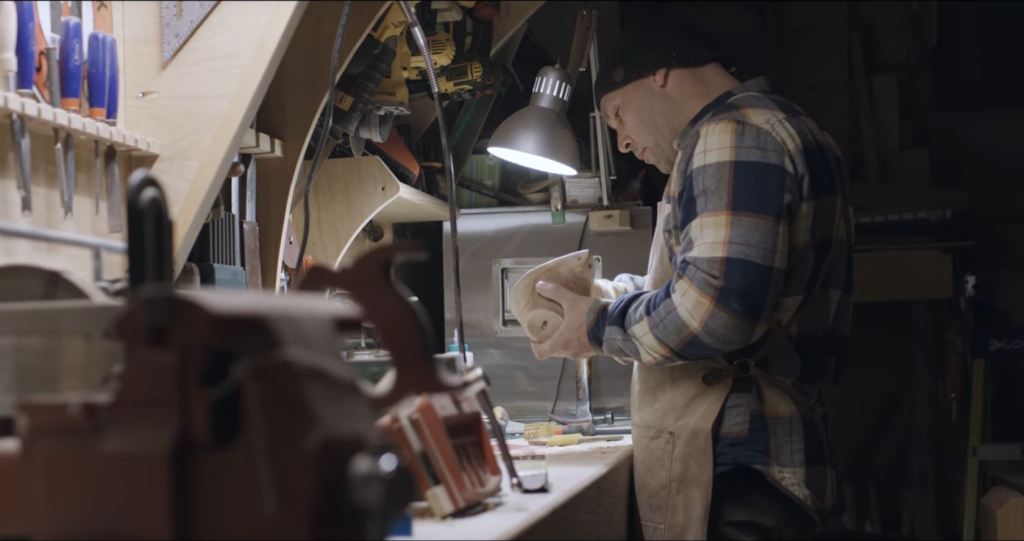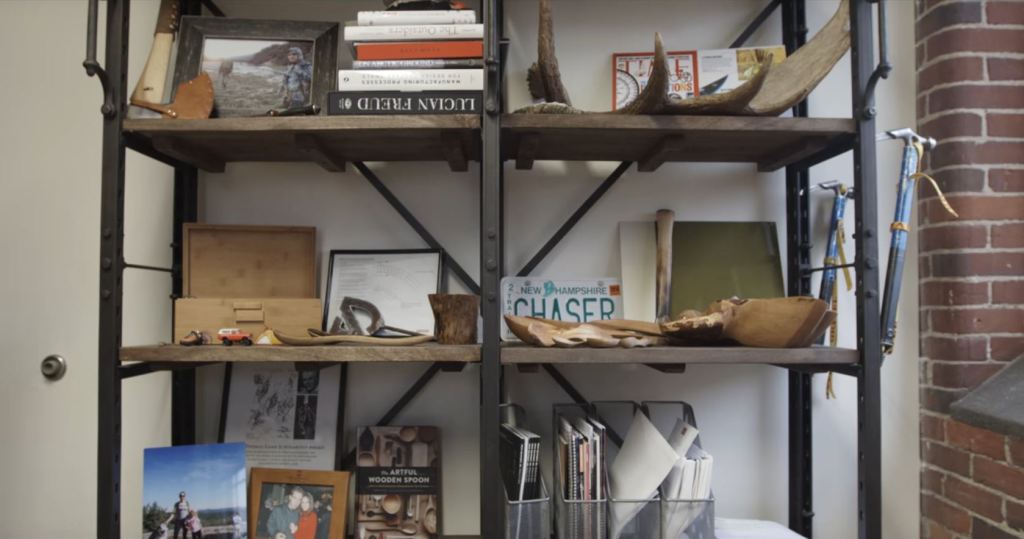Yesterday, I went ice climbing with some coworkers from NEMO. At the end of the day, as we were packing up, one of the novice climbers said, “I can see how this would just get more fun the better you are at it.”
And isn’t that true of everything in life? Normally, there’s a little voice in your head that narrates your struggles and tries to give advice like an overeager belayer spouting too much beta. For my coworker, trying ice climbing for the first time, there was probably a little terror in that inner voice. But when you’re in the groove, doing something you’re really good at, the nagging and anxiety goes away. Maybe the little voice becomes a soundtrack instead, or maybe your head just clears completely.
The better you are at something, the more the active decision-making moves to your subconscious, which is ten thousand times faster and smarter than the little voice of your conscious mind. In the case of ice climbing, for example, time slows, your vision widens and your tools become an extension of your body. It’s a state of mindfulness driven by total engagement and utter focus.

When you’re climbing in this state of awareness and flow, the rest of the world slips away and you experience perfect harmony with your surroundings. Self-doubt is replaced with self-actualization. The whole complexity of life reduces to a couple urgent priorities: climb up, stay safe, stay warm. Paradoxically, it’s extremely relaxing. And it’s the ultimate validation of existence—a confirmation in a way that you’re worthy of survival. In these moments, you have a sense of synchronicity and flow with the universe that’s one of the most addictive and fulfilling feelings in life.
If you’ve ever linked perfect turns in deep powder, nailed the sequence of a tough boulder problem, ridden a wave to the shore, or courted and fallen in mutual love with someone, you know what it’s like to answer an opportunity with a perfect set of moves. It’s the best feeling.
So why aren’t we always locked in pursuit of mastery? If the reward of accumulating skill is so great, you’d think we’d all be constantly obsessed with self-betterment.
The reason is, getting really good at something takes a lot of commitment and hard work. The thing about ice climbing, and most of life for that matter, is that it’s pretty easy to get good enough, but really tough to get great. The nature of climbing a big chunk of ice with sharp, well-engineered tools that will stick in just about anywhere with enough work, is that it you can get to the top even with bad technique. If the route is hard enough, like an overhanging mixed line, there may be no way to cheat having perfect technique, but on traditional ice, a little hard work can make up for a lot of inefficiency. And so, once you get to a moderate level of ability, it’s easy to plateau.

I think it’s in our nature to plateau with everything we do in life. Most of our millions of years of evolution was spent in environments filled with mortal hazards with little to protect us except our wits. And it makes sense that it would have been in our best interest to decide pretty quickly if a threat wasn’t worthy of much concern.
What this means, I believe, is that we’re wired to settle. We’re inclined to tell ourselves, “Good is good enough.” And settling for being good enough is a surefire way to miss out on that tremendous feeling of flow, the profound satisfaction of doing something, even for a brief moment, masterfully.
If you don’t battle the force of routine, it’s far too easy to slip into a mode of doing the same thing every day, day after day, and barely being mentally present while it happens. And weeks and months, even years, can go by like this, doing the same thing over and over, detached, not really getting anything out of it, mindlessly laboring away time.
So how do we fight the rut? Living life adventurously, constantly putting ourselves in new and slightly uncomfortable situations. When the brain is faced with something new, a new challenge or sensation or scenery, it switches to full attention and immediately sets about trying to make sense of things. Injecting adventure into our lives breaks the pattern of habituation and keeps us from settling. Adventure keeps us engaged and in the pursuit of learning and improving.

When you try a sport like ice climbing for the first time, you’re switched on. The key is keeping it that way. What’s paradoxical about my coworker acknowledging how satisfying it must be to climb ice when you’re good at it is that I envied the awesome exhilaration and stimulation he felt ice climbing for the first time. He was totally in the moment, absolutely juiced, wide-eyed and alive.
That’s how I want to feel every waking moment of my life! And staying that way is tough. The brain habituates fast. Real fast. Science has shown anxiety and exhilaration can drop to near zero in as few as three exposures. If you want to be switched on, learning, improving and getting the most out of life, you have to keep making it an adventure. Like Inspector Clouseau’s mandate to Cato, you have to invite life to jump out and surprise you at any moment.
I’m not a great ice climber. But I also haven’t settled. I’m a very, very long way from being Will Gadd, but when it comes to old school, traditional ice, after over twenty years of loving this sport, I feel pretty solid and I enjoy the quiet in my head. I even have frequent moments of feeling like I’m doing a choreographed dance. And for a guy with no natural rhythm, that’s a pretty awesome feeling.